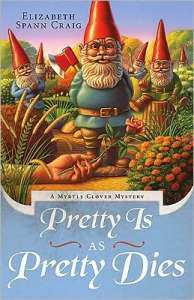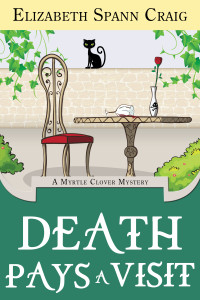By Elizabeth S. Craig, @elizabethscraig
For years, I belonged to several email loops with other traditionally published mystery writers. We would share information and resources with each other and were on a blogging schedule to contribute to the group blog.
Eventually, I dropped out of all of these groups. One of my failings is my lack of patience and another is my overwhelming desire to fix things. These two issues combined with a dose of me-trying-to-be-professional meant that I was constantly biting my tongue while reading messages from these loops regarding author issues with our traditional publishers.
I was especially sad on the occasions when an author would apologize for having their series canceled. They would be in the process of pitching another series to their agent and/or publisher and would offer to drop out of the blog since they weren’t sure if they were going to continue being contracted writers.Continue reading




